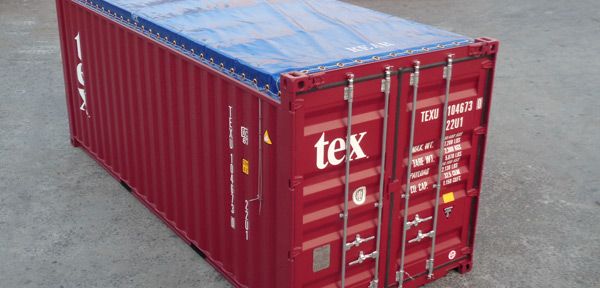Code of Business Conduct and Ethics
 |
Code of Business Conduct and Ethics As of: May 2012 |
|
TEXTAINER GROUP HOLDINGS LIMITED CODE OF BUSINESS CONDUCT AND ETHICS (Adopted on 28 August, 2007 and As Amended on 17 May 2012) 1. Introduction 1.1 This Code of Business Conduct and Ethics (this "Code") establishes the basic standards and rules of conduct of Textainer Group Holdings Limited and its subsidiaries ("Textainer" or the "Company") and their employees and non-employee directors. Employees include the Company's principal executive officer, principal financial officer, principal accounting officer or controller, and persons performing similar functions. This Code is intended to be both the Company's "code of ethics" as defined in Item 16B of Form 20-F under the Securities Exchange Act of 1934, as amended, and the Company’s "code of business conduct and ethics" within the meaning of Section 303A.10 of the New York Stock Exchange Listed Company Manual. By its nature, this Code cannot be exhaustive, and items and areas not specifically addressed should be treated in extreme good faith to the highest professional and ethical standards even where this Code may be silent. 1.2 Under this Code, each employee and director of the Company (each an "employee" or "director," respectively) must: (i) observe the highest standards of business ethics, (ii) obey the laws of the country or state in which he or she is a resident as well as of any jurisdiction in which the Company conducts its business, (iii) conduct personal and business affairs in such a manner as to avoid any possible conflict of interest with his or her duties and responsibilities to the Company, (iv) at all times avoid any situation which might give even the appearance of impropriety, or which might subject his or her actions to question, and (v) comply with this Code at all times. 1.3 It is the Company's policy that there will be no unlawful discrimination in the work environment based on race, color, religion, gender, sexual orientation, age, national origin, or disability and that all employees of Textainer, as well as the employees of Textainer's customers, suppliers and service providers are to be treated with respect and dignity. Such discrimination, intimidation or harassment of any kind is strictly prohibited and each employee and director is responsible to act in a manner that is consistent with this policy. 1.4 It is the responsibility of employees and directors to report to the Company's Compliance Officer (the "Compliance Officer") any suspected dishonest or illegal activities or any discrimination, intimidation or harassment initiated or carried out by any other employee or director. 1.5 Failure to comply with this Code will be viewed as a serious disciplinary breach and will result in appropriate disciplinary action being taken which, depending on the circumstances and severity of the offense, could include one or more of the following: disciplinary action up to and including termination, required reimbursement of losses or damages and referral for criminal prosecution or civil action. 1.6 Any waiver of this Code for executive officers or directors may be made only by the Company's Board of Directors (the "Board") or a Board committee. 1.7 Certain provisions of this Code require employees and directors to act, or refrain from acting, unless prior approval is received from the appropriate person. Employees requesting approval pursuant to this Code should request such approval in writing to the Compliance Officer. Approvals relating to executive officers, as such term is defined under the Securities Exchange Act of 1934, as amended, and directors must be obtained from the Board. In addition, approvals relating to an individual who is also the Company's director, principal executive officer, principal financial officer, principal accounting officer or controller, or a person performing similar functions must be obtained from the Board's Audit Committee (the "Audit Committee"). All other approvals may be granted by the Compliance Officer. 1.8 Changes to this Code may only be made by the Board. In some situations it may not be clear whether a provision of this Code is intended to apply to particular conduct. In such situations the Board and its Corporate Governance and Nominating Committee have full power and authority to interpret this Code in a manner consistent with this Code's plain language. A determination that this Code was not intended to apply to particular conduct shall not be deemed to be a waiver of this Code's prohibitions. 2. Conflicts Of Interest 2.1 Conflicts of interest are strictly prohibited. A conflict of interest exists when an employee or director has a relationship with, or engages in any activity, or has any personal financial interest that might impair his or her independence of judgment or influence his or her decision or actions concerning Company business. Employees and directors must avoid situations where their personal interests could conflict (or even appear to conflict) with the interests of the Company. 2.2 Personal Financial Interest. A. Employees must disclose to the Compliance Officer outside financial interests that might influence (either directly or indirectly) their corporate decisions or actions. Upon such disclosure, the Compliance Officer will advise the employee whether or not the Company believes a conflict of interest exists. If the Compliance Officer believes that such financial interests are in conflict with the Company's interests, the employee will be expected to terminate such interest in order to remain employed by the Company. Such financial interests include, but are not limited to, personal or family ownership of (or direct or indirect interest in) any firm, business or company that is a customer, supplier or direct or indirect competitor of the Company. See Section 2.5 below. B. Employees are to make disclosure as soon as a potential conflict arises. In addition, all employees have a continuing obligation to disclose any interest, direct or indirect, that they may have in any contract or arrangement or proposed contract or arrangement with the Company. 2.3 Although Textainer has no interest in preventing employees from engaging in lawful activities during nonworking hours, employees must make sure that their outside activities do not conflict or interfere with their responsibilities to the Company. Textainer encourages employees and directors to be actively involved in their communities through volunteer service to charitable, civic and public service organizations, and through participation in the political process and trade associations. Any decision to become involved is entirely personal and voluntary. An employee's personal community activities are done on his or her own time and with his or her own resources. Employees and directors must make sure, however, that their service does not pose a perceived or actual conflict of interest with their employment or service with Textainer. This is particularly important before accepting any leadership position (such as membership on the board of a charitable or civic organization), seeking or accepting political office, or soliciting a charitable contribution. 2.4 Serving as a director of another for-profit corporation or as a member of a standing committee of a for-profit organization may create a conflict of interest. Employees must disclose such service to the Compliance Officer and obtain prior approval before serving on the board of another company, whether or not such company is a competitor of Textainer. 2.5 Employees and directors must avoid even the appearance of a conflict of interest in their relationship with competitors. Without approval, employees and directors may not: (i) make or maintain a financial investment in more than 3% of the outstanding capital stock of a publicly traded competitor or $100,000 in any equity security or security convertible into equity of a competitor that is not publicly traded; (ii) provide compensated or uncompensated services to a competitor, except services rendered under a valid Textainer contract with the competitor; (iii) disclose any Company proprietary information to a competitor, unless a nondisclosure agreement is in place; or (iv) utilize for any unauthorized purposes, or disclose to a competitor or other third-party, data that has been entrusted to the Company by a customer or supplier. 2.6 A conflict of interest can also arise because of the business activities of an employee's or director's close relatives. For example, an employee or director may have a potential conflict of interest wherever a close relative has a significant relationship with, or has a significant financial interest in, any supplier, customer or competitor. An employee or director may not make or attempt to influence any decision that could directly or indirectly benefit his or her close relative. 2.7 In order to protect against the appearance of a conflict of interest, each employee should make appropriate disclosure of the interest to the Compliance Officer. If the individual is a director, principal executive officer, principal financial officer, principal accounting officer or controller, or a person performing similar functions, such disclosure should be made to the Audit Committee. 3. Dealing with Customers and Suppliers The following policies are intended to help employees and directors recognize and avoid potential ethical or legal problems when dealing with customers and suppliers of goods and/or services to Textainer. 3.1 Financial Inducements and Rebates. A. Employees and directors, and members of their immediate families, must not accept any form of payment, financial inducement or rebate (whether in cash or in goods and services) from customers or suppliers. 3.2 Gifts and Entertainment A. Employees and directors, and members of their immediate families, may not solicit, and must exercise great care in accepting, gifts, gratuities, entertainment, unusual hospitality or any other personal benefits or favors from customers, suppliers or potential customers or suppliers. B. Under no circumstances may an employee accept gifts of money or other payments from a supplier or potential supplier. C. Unsolicited, non-monetary goods from a customer or supplier or potential customer or supplier may be accepted by employees and directors, and members of their immediate families, only if the gifts from any one source have a value of not more than the equivalent of US$100 (one hundred United States dollars) per annum, even if these are advertising or promotional gifts which are clearly marked with brand names. D. If non-monetary gifts of more than the equivalent value of US$100 (one hundred United States dollars) per annum from any one such source must be accepted due to reasons of protocol, courtesy or other special circumstances, such gifts must immediately be reported to the Compliance Officer who will determine the appropriate disposal of such gift. E. Employees may not accept loans from any person or entity having or seeking business with the Company. Executive officers and directors may not receive loans from the Company, nor may the Company arrange for or guarantee any loan for these individuals. However, a loan from a financial institution in the ordinary course of business at normal interest rates prevailing at the time of borrowing is permissible. F. Employees and directors, and members of their immediate families, may provide or accept meals and entertainment, including attendance at sporting or cultural events, as long as it is associated with an occasion at which business is discussed and is provided as a normal part of business. Each employee should take care to insure that such activities are necessary and that their value and frequency are not excessive under all the applicable circumstances. 3.3 Government Contracting. A. Detailed laws and regulations govern virtually every aspect of doing business with national or local governments and their agencies. Activities that might be permitted when working with the private sector may be improper or even illegal when a national or local government is the customer. B. Textainer employees should seek to adhere to the highest standards of honesty and integrity in their relations with government officials and employees. For example, employees should observe the following principles when bidding or performing government contracts: (i) Do not offer or provide meals, transportation, gifts or other consideration to government employees except as permitted under applicable law and Company policy. (ii) Obey the regulations governing current and postgovernment employee conflicts of interests. Obtain all appropriate government approvals prior to recruiting or hiring current or former government employees. (iii) Obtain appropriate licenses prior to exporting or even discussing certain technologies with citizens of other countries. (iv) Obey any requirements that may restrict access to source selection or competitive information. 3.4 Agents and Consultants. A. Any agent or consultant acting on behalf of the Company who receives a commission or fee with respect to sales made by or for the Company, must in writing: ((i) agree to a determinable basis for such compensation; (ii) agree not to make any unauthorized commitments or representations on behalf of the Company; and (iii) agree to make no payment to a third party in connection with the transaction for which such compensation is paid, other than payment of reasonable and necessary business expenses not in breach of applicable local laws. B. No person shall be engaged as an intermediary for the Company who has a decision-making role on behalf of the other party in the contemplated transaction, unless such role and any commission arrangement are clearly legal in the country involved and are disclosed to and approved in writing by a higher authority within Textainer and within the organization of the other party. C. Commissions or fees paid to intermediaries must be reasonable and commensurate in amount with the rendering of normal, bona fide sales or service support and must not be paid with the intent or understanding that such compensation be used for purposes prohibited by this policy or be shared with employees, directors and/or consultants within the Company. 3.5 Compliance with Anti-Corruption Laws. A. Employees and directors must comply with the U.S. Foreign Corrupt Practice Act and any other applicable law that prohibits bribery, including the United Kingdom Bribery Act 2010 (“Applicable Anti-Corruption Laws”). Employees and directors may not, directly or indirectly, through themselves or an intermediary, offer, pay, promise, or authorize to pay any money, gift, or anything of value, to any person, for the purpose of obtaining or retaining business, securing any improper advantage, or inducing or rewarding any favorable action. B. Employees and directors are required to report to the General Counsel any suspected or known violations of Applicable Anti- Corruption Laws. 4. Confidential Information 4.1 Employees and directors must maintain the confidentiality of information entrusted to them by the Company or its customers, suppliers or employees or other persons except when disclosure is authorized or legally mandated. Confidential information includes all non-public information, including information that might be of use to competitors or harmful to the Company or its customers if disclosed. 4.2 The Company expects all of its employees to educate themselves about and be alert to threats to the security of confidential information entrusted to the Company and its employees. 4.3 Confidential information within the Company's possession falls into three general categories: (1) confidential proprietary information about the Company's business, including but not limited to trade secrets, other proprietary information, and information which may be patentable ("Proprietary Information"); (2) confidential information entrusted to the Company by third parties such as customers (including the U.S. government and its agencies), suppliers, or other third parties ("Third Party Information"); and (3) personally identifiable information received from employees, customers, suppliers or other third parties (including but not limited to names, addresses, Social Security Numbers, background information, credit card or bank information, telephone or facsimile numbers, e-mail addresses and health information) ("Personal Information") which if misused could result in identity theft, credit card fraud or other serious harm. 4.4 Third Party Information may include classified information received from the U.S. government which requires employees to obtain security clearances to handle such classified information. The U.S. government or other third parties may require that special procedures be followed with respect to classified or other Third Party Information. Personal Information may be subject to protection under federal, state or local laws in the U.S., or under laws of other countries. No Personal Information may be transmitted from one country to another country without prior managerial approval. No Personal Information may be disposed of except pursuant to the Company's approved methods of disposal. 4.5 Any employees with questions about how to appropriately handle or dispose of Proprietary, Third Party or Personal Information should immediately bring their questions to the attention of the Company's management before taking any action with respect to such Proprietary, Third Party or Personal Information. 5. Fair Dealing 5.1 Each employee and director should endeavor to deal fairly with the Company's customers, suppliers, competitors and employees. Employees and directors may not take unfair advantage of anyone through manipulation, concealment, abuse of privileged information, misrepresentation of material facts, or any other unfair-dealing practice. Employees and directors may not enter into agreements or discussions with competitors that have the effect of fixing or controlling prices, dividing and allocating markets or territories, or boycotting suppliers or customers. 6. Government Investigations 6.1 Employees and directors must promptly notify the Compliance Officer of any government investigation or inquiries from government agencies concerning Textainer. Employees and directors may not destroy any records, books of account or other documents relating to Textainer except in accordance with the Company's document retention policy. If an employee or director is aware of any government investigation or inquiry, he or she may not destroy any records, books of account or other documents relating to Textainer unless advised by the Compliance Officer that he or she may continue to follow Textainer's normal document retention policy. 6.2 Employees and directors must not obstruct the collection of information, data or records in an investigation. Employees and directors must not lie to government investigators or make misleading statements. Employees and directors must not attempt to cause any other employee or director to fail to provide accurate information to government investigators. 7. Accuracy of Reports, Records and Accounts 7.1 All employees are responsible for the accuracy of their respective records and reports. Accurate information is essential to Textainer's ability to meet legal and regulatory obligations and to compete effectively. The records and books of account of Textainer shall meet the highest standards and accurately reflect the true nature of the transactions they record. Unless pursuant to specific guidance in accordance with Textainer's normal document retention policy, destruction of any records, books of account or other documents is strictly prohibited. 7.2 Employees and directors must not create false or misleading documents or accounting, financial or electronic records for any purpose, and no one may direct an employee to do so. For example, expense reports must accurately document expenses actually incurred in accordance with Textainer policies. Employees and directors must not obtain or create "false" invoices or other misleading documentation or invent or use fictitious entities, sales, purchases, services, loans or other financial arrangements for any purpose. Employees are also responsible for accurately reporting time worked. 7.3 No undisclosed or unrecorded account or fund may be established for any purpose. No false or misleading entries may be made in the Company's books or records for any reason. No disbursement of corporate funds or other corporate property shall be made without adequate supporting documentation or for any purpose other than as described in the documents. All employees must comply with the Company's internal controls and financial accounting policies at all times. 8. Insider Information and Trading 8.1 Insider Trading. A. It is the policy of the Company that no director, officer, other employee or consultant of the Company who is aware of material non-public information relating to the Company may, directly or through family members or other persons or entities, (a) buy or sell securities of the Company (other than pursuant to a pre-approved trading plan that complies with SEC Rule 10b5-1) or engage in any other action to take personal advantage of that information, or (b) pass that information on to others outside the Company, including family and friends. In addition, it is the policy of the Company that no director, officer, other employee or consultant of the Company who, in the course of working for the Company, learns of material non-public information about a company with which the Company does business, including a customer or supplier of the Company, may trade in that company's securities until the information becomes public or is no longer material. B. Information is considered "material" as to a certain company if there is a substantial likelihood that a reasonable investor would consider it important in making a decision to purchase, hold or sell that company's securities (e.g., information regarding a possible merger or acquisition involving the company, the introduction of important products or major marketing changes). In addition, any information that could be expected to affect the stock price for a company's securities, whether it is positive or negative, should be considered material. C. Non-public information is any information that has not been disclosed to the investing public. Disclosure by press release or in a company's periodic reports filed with the SEC is necessary to make the information public. However, even after the release of material information to the public, one should allow at least one (1) full business day (that is, a day on which national stock exchanges are open for trading) after dissemination thereof, for the investing public to absorb and evaluate the information before trading in the relevant company's securities. In addition to complying with the terms of this Code, employees and directors are also required to comply with the terms of the Company's Insider Trading Policy. 8.2 Communications with the Media and the Financial Community. A. Textainer communicates with the press and with the financial community through official channels only and employees should not communicate with the press or financial community before having been specifically authorized to do so. The Company provides accurate and timely information about its business to investors, the media and the general public. All inquiries received from financial analysts or the media concerning Textainer should be directed to the Company's Chief Financial Officer. All legal inquiries concerning Textainer should be referred to the Compliance Officer. All inquiries regarding current or former employees of Textainer should be referred to the Company's Human Resources Department. B. Textainer employees should not speak with or send information about the Company, including forwarding any internal emails or presentations, to the media or publicly disseminate it without the presence or consent of the Chief Financial Officer. In particular, communications posted on Internet "chat" rooms, web-blogs or similar sites may cause significant harm and create liability for Textainer and its employees. C. Textainer will participate in customer and vendor press releases as long as there is a distinct and obvious benefit to Textainer. No promises should be made to any customer or vendor regarding Textainer's commitment to issue, or participate in, an announcement or release, or the timing of such an announcement, without the prior approval of the Chief Financial Officer. Under applicable laws, Textainer may have an obligation to contemporaneously or promptly disclose any information disclosed to such persons to the public as well. Such communications must be communicated through the Chief Financial Officer. D. In addition, employees and directors are to comply with the Company's Fair Disclosure Policy. 9. Political Activities and Contributions 9.1 No political contributions are to be made using Textainer funds or assets to any political party, political campaign, political candidate or public official in the United States or any foreign country, unless the contribution is lawful and expressly authorized by the Board or by the Chief Executive Officer. In addition, employees and directors may not make a political contribution on behalf of Textainer or with the appearance that such contribution is being made on behalf of Textainer unless expressly authorized by the Board or by the Chief Executive Officer. A "contribution" is any direct or indirect payment, distribution, loan, advance, deposit, gift of money, services or anything of value in connection with an election or to an organization or group formed to support or defend a referendum or ballot issue. 10. Protecting Company Assets 10.1 Employees and directors are prohibited from taking for personal use or gain opportunities that are discovered through the use of corporate property, information or position without approval from the Compliance Officer. No employee or director may compete with the Company directly or indirectly except as permitted by Company policies. 10.2 All employees and directors should protect the Company's assets and ensure their efficient use. Theft, carelessness and waste have a direct impact on the Company's profitability. All Company assets should be used for legitimate business purposes. 10.3 Company resources may be used for minor personal uses so long as such use is reasonable, does not interfere with one's duties, is not done for pecuniary gain, does not conflict with the Company's business and does not violate any Company policy. 10.4 Internal information and communication facilities, including all computer equipment and software, shall be used only for conducting Company business, or for purposes authorized by management. They should never be used unlawfully to cause any injury to, or interfere with the private information of, any other company. The unauthorized use of such facilities and equipment and or copying of software or documents, whether or not for personal gain, is a misappropriation of Company assets, and may result in disciplinary action by the Company as well as possible civil and criminal liability. 10.5 If an employee becomes aware of any abuse or misappropriation of any of the Company's assets, he/she must report such abuse or misappropriation to the Compliance Officer. 11. Technology Use and Privacy 11.1 Textainer provides various technology resources (including computers, telephones, software, copying machines, Internet access, e-mail and voice mail) to authorized employees to assist them in performing their job duties for the Company. Each employee has the responsibility to use the Company's technology resources in a manner that complies with applicable laws and Company policies, increases productivity, enhances the Company's public image and is respectful of other employees. 11.2 Access to the Company's technology resources is within the sole discretion of the Company and subject to Company policies. Generally, employees are given access to the Company's various technologies consistent with their job functions. The Company reserves the right to limit such access by any means available to it, including revoking access altogether. 11.3 All information that is stored on or has passed through Textainer's servers or other equipment, including but not limited to all e-mails, voicemails, records of Internet access, and documents created on any Company computer, is the exclusive property of Textainer. 11.4 Employees have no right or expectation of privacy with regard to their use of electronic resources or with regard to information that is stored on Company servers, that is received, created, sent or accessed by the user, or to which the user is given access. Personal items, messages or information that the employee considers private should not be placed or kept anywhere in the Textainer workplace, such as in telephone systems, office systems, electronic files, desks, credenzas, lockers or offices. Textainer management has the right to access those areas and any other Textainer facilities. Additionally, in order to protect its employees and assets, Textainer may ask to search an employee's personal property, including briefcases and bags, located on or being removed from Textainer locations; the employee is expected to cooperate with such a request. Employees, however, should not access another employee's work space, including electronic files, without prior approval from management. 11.5 Textainer employees may not use the Company's technology resources to copy, retrieve, forward or send copyrighted materials unless they have the author's permission or are accessing a single copy only for personal reference. Violation of copyright laws is a potential financial and legal liability for both the Company and the offending employee. 11.6 Textainer's employees may not use any of the Company's technology resources for any illegal purpose, in violation of any Company policy, in a manner contrary to the best interests of the Company, in any way that discloses confidential or proprietary information of the Company or third parties on an unauthorized basis, or for personal gain. 12. Our Work Environment 12.1 The diversity of the Company's employees is a tremendous asset. Textainer is firmly committed to providing equal opportunity in all aspects of employment. It is Textainer's policy to prohibit unlawful discrimination on the basis of race, color, religion, sex, age, national origin or any other factor prohibited by law. This policy applies to all personnel actions, including recruiting, hiring, promotions, compensation, benefits, transfers, layoffs and termination. 12.2 Textainer is committed to providing a work environment that is free from all forms of discrimination and conduct that can be considered harassing, coercive, or disruptive, including sexual harassment. Harassment may include conduct which is not directed at a particular individual, but which occurs in his or her presence. Inappropriate material transmitted electronically by e-mail or the Internet also constitutes prohibited harassment and will not be tolerated by Textainer. 12.3 This policy prohibits any form of harassment of employees by managers, supervisors or co-workers, both in the workplace and off the premises, including at social activities conducted or sponsored by Textainer. Similarly, Textainer will not tolerate harassment, including sexual harassment, of its employees by non-employees with whom Textainer employees have a business, service or professional relationship. 12.4 The Company strives to provide each employee with a safe and healthy work environment. Each employee is responsible for maintaining a safe and healthy workplace for all employees by following health and safety rules and practices and reporting accidents, injuries and unsafe equipment, practices or conditions. 13. Compliance and Reporting 13.1 Any employee or director who violates the provisions of this Code will be subject to disciplinary action, up to and including termination. Willful disregard of criminal statutes underlying this Code may require the Company to refer such violation for criminal prosecution or civil action. 13.2 Policy Prohibiting Unlawful Retaliation or Discrimination. A. Textainer is committed to complying with all applicable laws that protect employees against unlawful discrimination or retaliation by their employer as a result of their lawfully reporting complaints or participating in investigations regarding the Company's accounting practices, internal accounting controls, corporate fraud or other violations of federal or state law by the Company or its agents. B. However, employees who file reports or provide evidence that they know to be false or without a reasonable belief in the truth and accuracy of such information will not be protected by this Code and may be subject to disciplinary action, including the termination of their employment. In addition, except to the extent required by law, the Company does not intend this policy to protect employees who violate the confidentiality of any applicable lawyer-client or physicianpatient privilege to which the Company or its agents may be entitled or who violate their confidentiality obligations with regard to the Company's trade secret information. See the Company's Policy on Reporting Questionable Accounting and Auditing Practices and Policy Prohibiting Retaliation Against Reporting Employees (the "Whistleblower Policy") for further details. 13.3 Reporting Procedures and Other Inquiries. A. Any employee having knowledge of an actual or possible violation by Textainer or its employees of a national or local law or regulation, the provisions of this Code or other policies of the Company is obligated to promptly report the matter to his or her immediate supervisor or to the Compliance Officer. B. In addition, an employee may submit complaints, concerns and information pursuant to the Whistleblower Policy. C. All conversations, calls and reports made in good faith will be taken seriously. When reporting a violation, employees will be asked to provide the time, location, names of the people involved, and other details so that the Company can investigate. D. Questions regarding the policies in this Code and applications for waivers of this Code may be directed to the Compliance Officer, or in the Compliance Officer's absence, the Chief Financial Officer. The Company's managers and supervisors shall provide timely advice and guidance to employees on ethics and compliance concerns and are expected to take a leadership role in promoting ethical business conduct. This document is not an employment contract between Textainer and its employees, nor does it modify their employment relationships with the Company. This Code is intended to clarify existing obligations for proper conduct. The standards and the supporting policies and procedures may change from time to time in the Company's discretion. Each employee is responsible for knowing and complying with the current laws, regulations, standards, policies and procedures that apply to the Company's work. The most current version of this document can be found at the Company's website at www.textainer.com. This Code was adopted on 28 August, 2007 and amended on 17 May 2012. |







